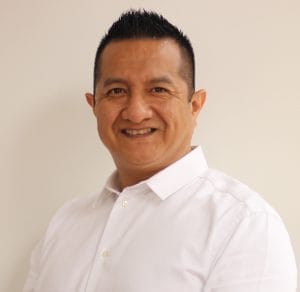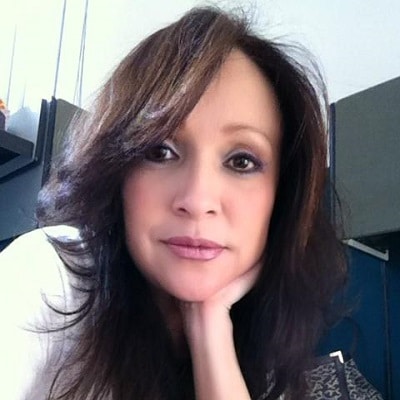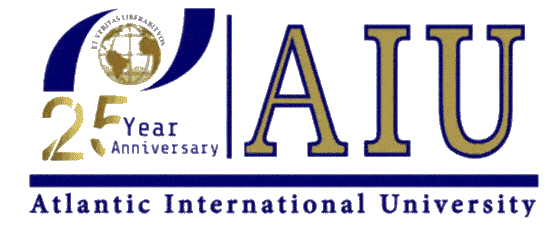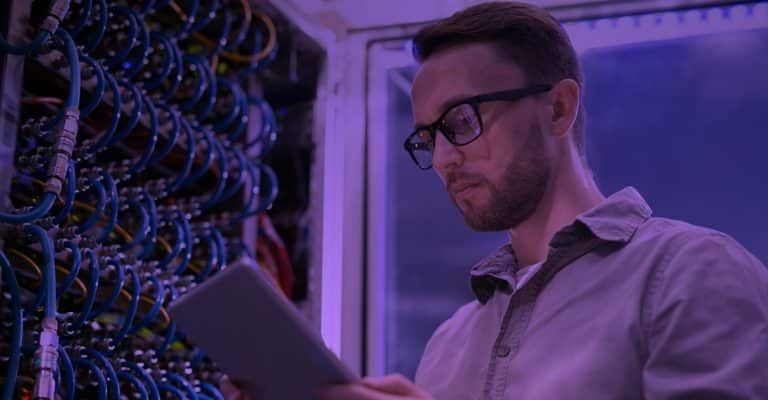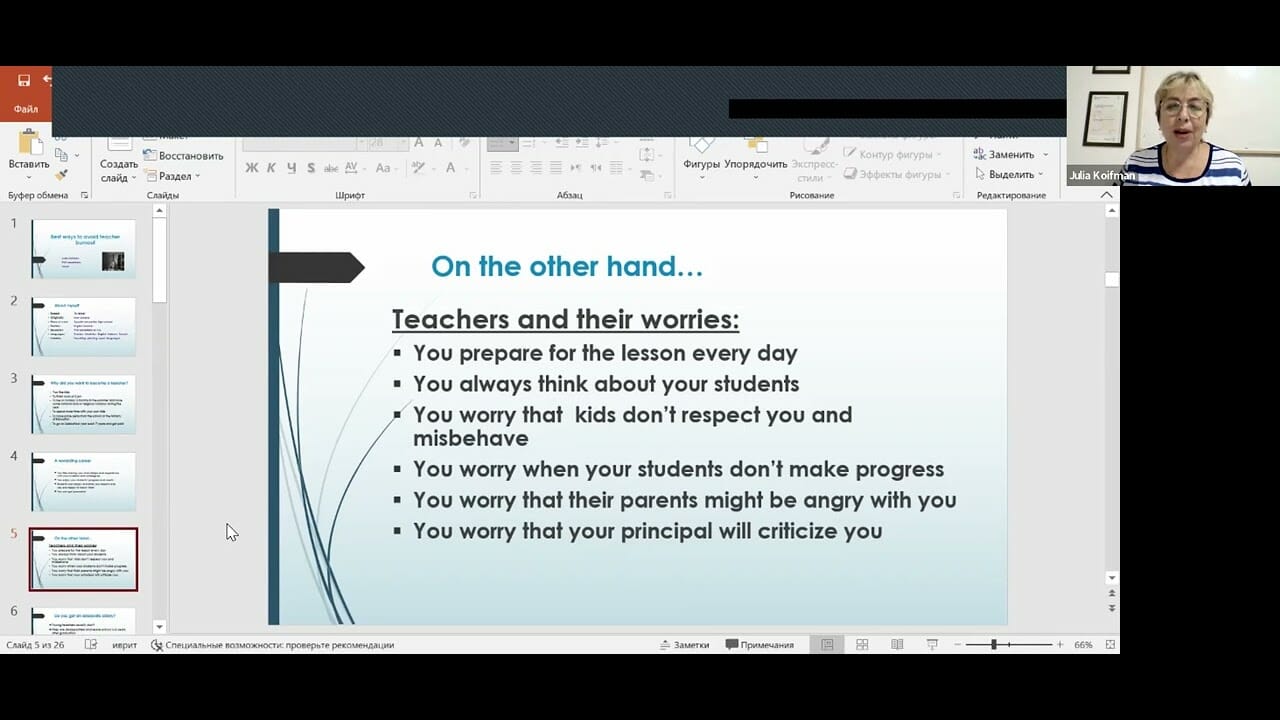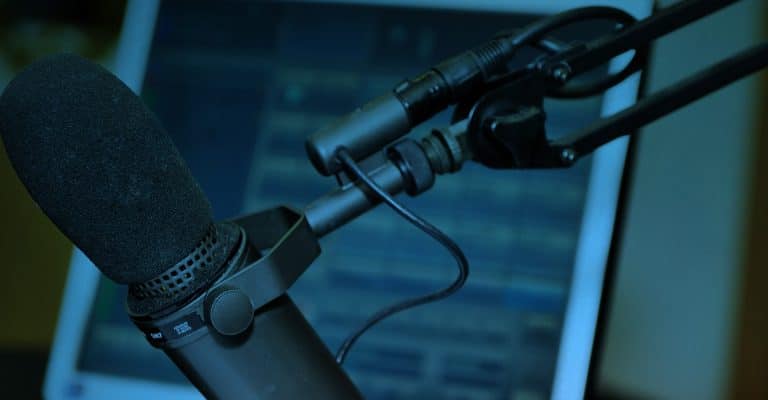- RESEARCHDistance Learning at AIU is enhanced by vast academic resources and innovative technologies build into the Virtual Campus: Hundreds of self-paced courses with video lectures and step by step lessons, thousands of optional assignments, 140,000 e-books, the Social Media & Networking platform allowing collaboration/chat/communications between students, and MYAIU develop students holistically in 11 areas beyond just academics.
- PROGRAMS OFFERED
- Areas of Study
- Courses and Curriculum
- Open Courses
- Register for a Program
- Certificate Program
-
Associate program
- Associate in Actuarial Science
- Associate in Addiction Counseling
- Associate in Agriculture Food And Resources
- Associate in Animal Science
- Associate in Anti Terrorism Security
- Associate in Behavior Analysis In Special Education
- Associate in Bioethics
- Associate in Biosystems
- Associate in Blockchain Technology & Digital Currency
- Associate in Business Communication
- Associate in Business Management
- Associate in Chemistry
- Associate in Climatology
- Associate in Cloud Computing
- Associate in Computer Engineering
- Associate in Computer Programming
- Associate in Computer Science
- Associate in Criminal Justice
- Associate in Culinary Arts
- Associate in Cultural Theological Communication
- Associate in Cybersecurity And Hacking
- Associate in Data Communication And Networking
- Associate in Database Administrator
- Associate in Early Childhood Education
- Associate in Ecotechnology
- Associate in Ecotourism
- Associate in Education
- Associate in Educational Technology
- Associate in Electric Vehicle Engineering
- Associate in Electrochemical Engineering
- Associate in Electronic Engineering
- Associate in English Literature
- Associate in Environmental Science
- Associate in eVTOL Engineering
- Associate in Fashion Design
- Associate in Fine Arts
- Associate in Foreign Trade
- Associate in Genetic Engineering
- Associate in Geography
- Associate in Geology
- Associate in Geophysical Sciences
- Associate in Graphic Design
- Associate in Health Sciences
- Associate in History
- Associate in Human Resources
- Associate in Integrated Water Management
- Associate in International Finance
- Associate in International Marketing
- Associate in Islamic Studies
- Associate in Kinesiology And Physiotherapy
- Associate in Library technology
- Associate in Linguistics
- Associate in Management
- Associate in Management Information Systems
- Associate in Maritime Management
- Associate in Metallurgy
- Associate in Micro and Multimode Grid Design
- Associate in Modern Power and Energy Systems
- Associate in Multimedia Design and Digital Art
- Associate in Nutrition
- Associate in Oil Gas And Energy Engineering
- Associate in Operations Management
- Associate in Optoelectronic Systems
- Associate in Organizational Development
- Associate in Organizational Diversity
- Associate in Pedagogical Training For Professionals
- Associate in Physical Culture And Sports
- Associate in Physics
- Associate in Public Health
- Associate in Quantum Computing Technology
- Associate in Radio And Television Production
- Associate in Scenography
- Associate in Social Media Marketing
- Associate in Sociology
- Associate in Sports Marketing
- Associate in Sports Psychology
- Associate in Sustainable Design and Construction
- Associate in Sustainable Materials Science
- Associate in Sustainable Natural Resources Management
- Associate in Sustainable Tourism
- Associate in Synthetic Biology
- Associate in Virtual Archival Science
- Associate of Adult Education
- Associate of Advertising
- Associate of Agriculture
- Associate of American History
- Associate of Biology
- Associate of Chemical Engineering
- Associate of Civil Engineering
- Associate of Communications
- Associate of Construction Management
- Associate of Economics
- Associate of Educational Administration
- Associate of Electrical Engineering
- Associate of Finance
- Associate of Healthcare Administration
- Associate of Human Resources Management
- Associate of Humanities
- Associate of Hydrology
- Associate of Industrial Engineering
- Associate of Information Systems
- Associate of Information Technology
- Associate of Interior Design
- Associate of International Relations
- Associate of Journalism
- Associate of Legal Studies
- Associate of Logistics
- Associate of Marketing
- Associate of Mass Media and Communication
- Associate of Mathematics
- Associate of Mechanical Engineering
- Associate of Mining Engineering
- Associate of Music
- Associate of Nutrition Science
- Associate of Philosophy
- Associate of Physical Education
- Associate of Political Science
- Associate of Project Management
- Associate of Psychology
- Associate of Renewable Energy
- Associate of Software Engineering
- Associate of Sport Science
- Associate of Statistics
- Associate of Strategic Management
- Associate of Technical Writing
- Associate of Telecommunications
- Associate of Theater
- Associate of Theology
- Associate of Tourism Planning and Development
- Associate of Travel and Tourism
- Associate of Unmanned Areal Systems Engineering
- Associates in Artificial Intelligence
- Associates in Engineering Systems
- Associates in Physical Anthropology
- Associates in Social Sciences
- Associates in Sociocultural Anthropology
- Associates in Systems Engineering
- Associates of Accounting
- Associates of Anthropology
- Associates of Archeology
- Associates of Architecture
- Associates of Art History
- Associates of Banking and Finance
- Associates of Business Administration
- Associates of Public Administration
- Associates of Science
- Associates of Urban Planning
- Associates of Visual and Performing Arts
- Micro and Multimode Grid Design
-
Bachelor Program
- Bachelor in Data Communication and Networking
- Bachelor in Actuarial Science
- Bachelor in Addiction Counseling
- Bachelor in Agriculture, Food and Resources
- Bachelor in Animal Science
- Bachelor in Anthropology
- Bachelor in Anti Terrorism Security
- Bachelor in Artificial Intelligence
- Bachelor in Arts in Cultural Theological Communication
- Bachelor in Autonomous Vehicle Technology
- Bachelor in Bachelor of Bioethics (BA)
- Bachelor in Behavior Analysis in Special Education
- Bachelor in Bibliotechnology
- Bachelor in Biosystems
- Bachelor in Blockchain Technology & Digital Currency
- Bachelor in Business Communication
- Bachelor in Business Management
- Bachelor in Chemistry
- Bachelor in Cloud Computing
- Bachelor in Computer Science
- Bachelor in Criminal Justice
- Bachelor in Culinary Arts
- Bachelor in Cybersecurity and Hacking
- Bachelor in Database Administrator (BS)
- Bachelor in Ecotechnology
- Bachelor in Ecotourism
- Bachelor in Education (B.Ed, BS)
- Bachelor in Educational Technology
- Bachelor in Electric Vehicle Engineering
- Bachelor in Electrochemical Engineering
- Bachelor in English Literature
- Bachelor in eVTOL Engineering
- Bachelor in Fashion Design (BA)
- Bachelor in Fine Arts
- Bachelor in Foreign Trade
- Bachelor in Genetic Engineering
- Bachelor in Geology
- Bachelor in Geophysical Sciences
- Bachelor in Graphic Design
- Bachelor in Health Sciences
- Bachelor in Integrated Water Management
- Bachelor in International Finance
- Bachelor in International Marketing
- Bachelor in Islamic Studies
- Bachelor in Kinesiology and Physiotherapy
- Bachelor in Linguistics
- Bachelor in Management
- Bachelor in Metallurgy
- Bachelor in Micro and Multimode Grid Design
- Bachelor in Modern Power and Energy Systems
- Bachelor in Multimedia Design and Digital Art
- Bachelor in Nutrigenetics
- Bachelor in Operations Management (BA)
- Bachelor in Optoelectronic Systems
- Bachelor in Organizational Development
- Bachelor in Organizational Diversity
- Bachelor in Pedagogical Training for Professionals
- Bachelor in Physical Anthropology
- Bachelor in Physical Culture And Sports
- Bachelor in Physics
- Bachelor in Public Relations
- Bachelor in Quantum Computing Technology
- Bachelor in Radio And Television Production
- Bachelor in Scenography
- Bachelor in Social Media Marketing
- Bachelor in Social Sciences
- Bachelor in Sociocultural Anthropology
- Bachelor in Sport Management
- Bachelor in Sports Marketing
- Bachelor in Sports Psychology
- Bachelor in Sustainable Design and Construction
- Bachelor in Sustainable Materials Science
- Bachelor in Sustainable Natural Resources Management
- Bachelor in Sustainable Tourism
- Bachelor in Synthetic Biology
- Bachelor in Virtual Archival Science
- Bachelor of Adult Education
- Bachelor of Advertising
- Bachelor of Animation
- Bachelor of Art History
- Bachelor of Biohacking and Nutrigenomics
- Bachelor of Educational Administration
- Bachelor of Healthcare Administration
- Bachelor of Human Resources Management
- Bachelor of Humanities
- Bachelor of Hydrology
- Bachelor of Information Technology
- Bachelor of Journalism
- Bachelor of Mass Media and Communication
- Bachelor of Mathematics
- Bachelor of Philosophy
- Bachelor of Physical Education
- Bachelor of Project Management
- Bachelor of Public Administration
- Bachelor of Software Engineering
- Bachelor of Sport Science
- Bachelor of Sports Science
- Bachelor of Statistics
- Bachelor of Strategic Management
- Bachelor of Technical Writing
- Bachelor of Theater
- Bachelor of Theology
- Bachelor of Tourism Planning and Development
- Bachelor of Travel and Tourism
- Bachelor of Unmanned Areal Systems Engineering
- Bachelor of Urban Planning
- Bachelor of Visual and Performing Arts
- Bachelor of Web Design
- Bachelors in Energy Storage and Battery Technology
- Bachelors in Accounting
- Bachelors in Accounting & Finance
- Bachelors in Agronomy Engineering
- Bachelors in Architecture
- Bachelors in Banking and Finance
- Bachelors in Biology
- Bachelors in Business Administration
- Bachelors in Chemical Engineering
- Bachelors in Civil Engineering
- Bachelors in Communications
- Bachelors in Computer Engineering
- Bachelors in Criminal Justice
- Bachelors in Early Childhood Education
- Bachelors in Economics
- Bachelors in Electrical Engineering
- Bachelors in Electronic Engineering
- Bachelors in Engineering
- Bachelors in Environmental Science
- Bachelors in Finance
- Bachelors in Finance and Banking
- Bachelors in History
- Bachelors in Hospitality Management
- Bachelors in Human Resources
- Bachelors in Industrial Engineering
- Bachelors in Information Systems
- Bachelors in Interior Design
- Bachelors in International Business
- Bachelors in International Relations
- Bachelors in Legal Studies
- Bachelors in Logistics
- Bachelors in Marketing
- Bachelors in Mechanical Engineering
- Bachelors in Mining Engineering
- Bachelors in Music
- Bachelors in Nutrition
- Bachelors in Oil Gas and Energy Engineering
- Bachelors in Political Science
- Bachelors in Psychology
- Bachelors in Public Health
- Bachelors in Renewable Energy
- Bachelors in Sociology
- Bachelors in Systems Engineering
- Bachelors in Telecommunications
- Bachelors in Zoology
-
Doctorate Program
- DBA – Doctor of Business Administration
- Doctor | in Actuarial Science
- Doctor | in Agriculture Food And Resources
- Doctor | in Animal Science
- Doctor | in Biosystems
- Doctor | in Cultural Theological Communication
- Doctor | in Cybersecurity And Hacking
- Doctor | in Early Childhood Education
- Doctor | in Ecotechnology
- Doctor | In Ecotourism
- Doctor | In Educational Technology
- Doctor | In Electronic Engineering
- Doctor | In Foreign Trade
- Doctor | of Biology (PhD)
- Doctor in Addiction Counseling
- Doctor in Behavior Analysis In Special Education
- Doctor in Bibliotechnology
- Doctor in Business Management
- Doctor in Data Communication And Networking
- Doctor of Adult Education
- Doctor of Agriculture
- Doctor of American History
- Doctor of Animation
- Doctor of Anthropology
- Doctor of Archaeology
- Doctor of Architecture (Ph.D.)
- Doctor of Art History
- Doctor of Artificial Intelligence
- Doctor of Autonomous Vehicle Technology
- Doctor of Biohacking and Nutrigenomics
- Doctor of Business Management (DBM)
- Doctor of Civil Engineering (D.Sc)
- Doctor of Cloud Computing
- Doctor of Economics (PhD)
- Doctor of Educational Administration (PhD)
- Doctor of Electric Vehicle Engineering
- Doctor of Electrical Engineering (D.Sc, PhD)
- Doctor of Electrochemical Engineering
- Doctor of Engineering Systems (D.Sc)
- Doctor of eVTOL Engineering
- Doctor of Finance (PhD)
- Doctor of Humanities
- Doctor of Hydrology
- Doctor of Industrial Engineering (D.Sc)
- Doctor of International Relations (D.Sc)
- Doctor of Legal Studies (PhD)
- Doctor of Logistics
- Doctor of Mass Media and Communication
- Doctor of Mechanical Engineering (D.Sc)
- Doctor of Micro and Multimode Grid Design
- Doctor of Mining Engineering
- Doctor of Music
- Doctor of Nutrition Science
- Doctor of Optoelectronic Systems
- Doctor of Project Management (PhD)
- Doctor of Public Administration
- Doctor of Public Health (PhD, D.Sc)
- Doctor of Quantum Computing
- Doctor of Renewable Energy
- Doctor of Sociology (PhD, D.Sc)
- Doctor of Software Engineering
- Doctor of Sport Management
- Doctor of Sport Science
- Doctor of Statistics
- Doctor of Technical Writing
- Doctor of Telecommunications (D.Sc)
- Doctor of Theater
- Doctor of Tourism Planning and Development
- Doctor of Travel and Tourism
- Doctor of Unmanned Aerial Systems Engineering
- Doctor of Visual and Performing Arts
- Doctor of Web Design
- Doctoral Degree Programs
- Doctoral in International Finance
- Doctorate in Accounting
- Doctorate in Actuarial Science
- Doctorate in Adult Counseling
- Doctorate in Advertising
- Doctorate in Agriculture Food And Resources
- Doctorate in Animal Science
- Doctorate in Anti Terrorism Security
- Doctorate in Behavior Analysis In Special Education
- Doctorate in Bibliotechnology
- Doctorate in Bioethics
- Doctorate in Biosystems
- Doctorate in Business Administration (DBA, PhD)
- Doctorate in Business Communication
- Doctorate in Business Management
- Doctorate in Chemical Engineering (D.Sc)
- Doctorate in Chemistry
- Doctorate in Clinical Nutrition
- Doctorate in Communication Online (D.Sc)
- Doctorate in Computer Engineering
- Doctorate in Computer Science
- Doctorate in Conflict Resolution & Peace Building
- Doctorate in Criminal Justice
- Doctorate in Culinary Arts
- Doctorate in Cultural Theological Communication
- Doctorate in Cyber Security & Hacking
- Doctorate in Data Communication And Networking
- Doctorate in Digital Marketing
- Doctorate in Early Childhood Education
- Doctorate in Ecotechnology
- Doctorate in Ecotourism
- Doctorate in Education
- Doctorate in Educational Technology
- Doctorate in Electronic Engineering
- Doctorate in Environmental Science
- Doctorate in Fashion Design
- Doctorate in Fine Arts
- Doctorate in Foreign Trade
- Doctorate in Genetic Engineering
- Doctorate in Geophysical Sciences
- Doctorate in Global Health
- Doctorate in Health Sciences
- Doctorate in Healthcare Administration Programs (PhD)
- Doctorate in Hospital Administration
- Doctorate in Human Resource Management (PhD)
- Doctorate in Human Resources
- Doctorate in Information Systems (D.Sc)
- Doctorate in Information Technology (D.Sc)
- Doctorate in Integrated Water Management
- Doctorate in Interior Design (PhD)
- Doctorate in International Marketing
- Doctorate in International Relations
- Doctorate in Islamic Studies
- Doctorate in Journalism (PhD)
- Doctorate in Kinesiology & Physiotherapy
- Doctorate in Linguistics
- Doctorate in Management
- Doctorate in Maritime Management
- Doctorate in Marketing (PhD)
- Doctorate in Mathematics
- Doctorate in Metallurgy
- Doctorate in Modern Power and Energy Systems
- Doctorate in Multimedia Design and Digital Art
- Doctorate in Oil Gas And Energy Engineering
- Doctorate in Organizational Development
- Doctorate in Organizational Diversity
- Doctorate in Pedagogical Training For Professionals
- Doctorate in Physical Anthropology
- Doctorate in Physical Culture And Sports
- Doctorate in Physical Education (D.Sc)
- Doctorate in Political Science
- Doctorate in Psychology (PhD, DPsy)
- Doctorate in Radio And Television Production
- Doctorate in Scenography
- Doctorate in Security Management
- Doctorate in Social Media Marketing
- Doctorate in Sociocultural Anthropology
- Doctorate in Sports Management
- Doctorate in Sports Marketing
- Doctorate in Sports Psychology
- Doctorate in Strategic Leadership
- Doctorate in Strategic Management
- Doctorate in Sustainable Design and Construction
- Doctorate in Sustainable Materials Science
- Doctorate in Sustainable Natural Resources Management
- Doctorate in Sustainable Tourism
- Doctorate in Synthetic Biology
- Doctorate in Virtual Archival Science
- Doctorate of Theology
- DS – Doctorate in Science
- Online Doctorate in Health Administration
- Online Doctorate in Hospitality
- Online Doctorate in Philosophy
- Postdoctoral in Bioethics
- School of Social and Human Studies
-
Master Program
- Master in Actuarial Science
- Master in Addiction Counseling
- Master in Agriculture Food And Resources
- Master in Animal Science
- Master in Anti Terrorism Security
- Master in Autonomous Vehicle Technology
- Master in Behavior Analysis In Special Education
- Master in Bibliotechnology
- Master in Bioethics
- Master in Biosystems
- Master in Blockchain Technology and Digital Currency
- Master in Business Communication
- Master in Business Management
- Master in Chemistry
- Master in Climatology
- Master in Cloud Computing
- Master in Computer Programming
- Master in Computer Science
- Master in Criminal Justice
- Master in Culinary Arts
- Master in Cultural Theological Communication
- Master in Cybersecurity And Hacking
- Master in Data Communication And Networking
- Master in Database Administrator
- Master in Early Childhood Education
- Master in Ecotechnology
- Master in Ecotourism
- Master in Educational Technology
- Master in Electric Vehicle Engineering
- Master in Electronic Engineering
- Master in Energy Storage and Battery Technology
- Master in Engineering Systems (MS)
- Master in Environmental Science
- Master in eVTOL Engineering
- Master in Fashion Design
- Master in Fine Arts
- Master in Foreign Trade
- Master in Geography
- Master in Geophysical Sciences
- Master in Graphic Design
- Master in Health Sciences
- Master in History
- Master in Industrial Engineering
- Master in Integrated Water Management
- Master in International Finance
- Master in International Marketing
- Master in Islamic Studies
- Master in Kinesiology And Physiotherapy
- Master in Linguistics
- Master in Management
- Master in Management Information Systems
- Master in Mass Media and Communication
- Master in Metallurgy
- Master in Micro and Multimode Grid Design
- Master in Microbiology
- Master in Modern Power and Energy Systems
- Master in Multimedia Design and Digital Art
- Master in Nutritional Science
- Master in Oil Gas And Energy Engineering
- Master in Organizational Development
- Master in Organizational Diversity
- Master in Pedagogical Training For Professionals
- Master in Philosophy
- Master in Physical Anthropology
- Master in Physical Culture And Sports
- Master in Political Science
- Master in Public Administration (MA)
- Master in Quantum Computing
- Master in Radio And Television Production
- Master in Scenography
- Master in Social Media Marketing
- Master in Social Sciences
- Master in Sociocultural Anthropology
- Master in Sociology (MA, MS)
- Master in Software Engineering
- Master in Sport Management
- Master in Sport Science
- Master in Sports Marketing
- Master in Sports Psychology
- Master in Statistics
- Master in Strategic Management
- Master in Sustainable Design and Construction
- Master in Sustainable Materials Science
- Master in Sustainable Natural Resources Management
- Master in Sustainable Tourism
- Master in Synthetic Biology
- Master in Technical Writing
- Master in Theater
- Master in Theology
- Master in Unmanned Aerial Systems Engineering (UAV and Drone Technology)
- Master in Virtual Archival Science
- Master of Adult Education
- Master of Advertising (MS, MBA)
- Master of Agriculture (MS)
- Master of American History
- Master of Animation
- Master of Anthropology (MA)
- Master of Archeology (MA)
- Master of Architecture (MS)
- Master of Art History (MA)
- Master of Artificial Intelligence
- Master of Banking and Finance (MA)
- Master of Biohacking and Nutrigenomics
- Master of Biology (MS)
- Master of Business Management (MS, MBM)
- Master of Chemical Engineering (MS)
- Master of Communications (MA, MS)
- Master of Computer Engineering
- Master of Construction Management
- Master of Economics (MS)
- Master of Electrical Engineering (MS, MSEE)
- Master of Human Resources Management (MHRM)
- Master of Humanities (MA)
- Master of Hydrology (MS)
- Master of Information Systems (MS)
- Master of Information Technology (MS, MIT)
- Master of Interior Design (MA)
- Master of International Relations (MS)
- Master of Journalism (MA, MJ)
- Master of Legal Studies (MA)
- Master of Logistics (MA)
- Master of Marketing (MS, MBA, MPA)
- Master of Mathematics (MS)
- Master of Mechanical Engineering (MS)
- Master of Mining Engineering (MS)
- Master of Music (MA)
- Master of Nutrition Science
- Master of Physical Education (MS)
- Master of Renewable Energy (MS)
- Master of Science in Educational Administration (MS)
- Master of Science in Healthcare Administration (MS)
- Master of Telecommunications (MS, M.TEL.)
- Master of Tourism Planning and Development
- Master of Travel and Tourism
- Master of Urban Planning
- Master of Visual and Performing Arts
- Master of Web Design
- Masters in Accounting
- Masters in Business Administration
- Masters in Civil Engineering
- Masters in Education
- Masters in Finance
- Masters in Human Resources
- Masters in International Relations
- Masters in Project Management
- Masters in Psychology
- Masters in Public Health
-
Postdoctoral Program
- Postdoctoral in Actuarial Science
- Postdoctoral in Addiction Counseling
- Postdoctoral in Animal Science
- Postdoctoral in Anti Terrorism Security
- Postdoctoral in Autonomous Vehicle Technology
- Postdoctoral in Behavior Analysis In Special Education
- Postdoctoral in Bibliotechnology
- Postdoctoral in Bioethics
- Postdoctoral in Biohacking and Nutrigenomics
- Postdoctoral in Biosystems
- Postdoctoral in Blockchain Technology and Digital Currency
- Postdoctoral in Business Communication
- Postdoctoral in Business Management
- Postdoctoral in Chemistry
- Postdoctoral in Cloud Computing
- Postdoctoral in Computer Engineering
- Postdoctoral in Computer Science
- Postdoctoral in Criminal Justice
- Postdoctoral in Culinary Arts
- Postdoctoral in Cultural Theological Communication
- Postdoctoral in Cybersecurity And Hacking
- Postdoctoral in Data Communication And Networking
- Postdoctoral in Early Childhood Education
- Postdoctoral in Ecotechnology
- Postdoctoral in Ecotourism
- Postdoctoral in Education
- Postdoctoral in Educational Technology
- Postdoctoral in Electrical Vehicle Engineering
- Postdoctoral in Electrochemical Engineering
- Postdoctoral in Electronic Engineering
- Postdoctoral in Energy Storage and Battery Technology
- Postdoctoral in Engineering Systems
- Postdoctoral in English Literature
- Postdoctoral in Environmental Science
- Postdoctoral in eVTOL Engineering
- Postdoctoral in Fashion Design
- Postdoctoral in Fine Arts
- Postdoctoral in Foreign Trade
- Postdoctoral in Genetic Engineering
- Postdoctoral in Geophysical Sciences
- Postdoctoral in Graphic Design
- Postdoctoral in Health Sciences
- Postdoctoral in Human Resources
- Postdoctoral in Humanities
- Postdoctoral in Integrated Water Management
- Postdoctoral in International Finance
- Postdoctoral in International Marketing
- Postdoctoral in International Relations
- Postdoctoral in Islamic Studies
- Postdoctoral in Journalism
- Postdoctoral in Kinesiology And Physiotherapy
- Postdoctoral in Linguistics
- Postdoctoral in Logistics
- Postdoctoral in Management
- Postdoctoral in Marketing
- Postdoctoral in Mass Communication
- Postdoctoral in Mathematics
- Postdoctoral in Metallurgy
- Postdoctoral in Micro and Multimode Grid Design
- Postdoctoral in Mining Engineering
- Postdoctoral in Modern Power and Energy Systems
- Postdoctoral in Multimedia Design and Digital Art
- Postdoctoral in Music
- Postdoctoral in Nutrigenetics
- Postdoctoral in Nutrition
- Postdoctoral in Oil, Gas and Energy Engineering
- Postdoctoral in Organizational Development
- Postdoctoral in Organizational Diversity
- Postdoctoral in Pedagogical Training For Professionals
- Postdoctoral in Philosophy
- Postdoctoral in Physical Anthropology
- Postdoctoral in Physical Culture And Sports
- Postdoctoral in Political Science
- Postdoctoral in Public Administration
- Postdoctoral in Public Health
- Postdoctoral in Quantum Computing
- Postdoctoral in Radio And Television Production
- Postdoctoral in Social Media Marketing
- Postdoctoral in Social Sciences
- Postdoctoral in Sociocultural Anthropology
- Postdoctoral in Sociology
- Postdoctoral in Software Engineering
- Postdoctoral in Sport Management
- Postdoctoral in Sport Science
- Postdoctoral in Sports Marketing
- Postdoctoral in Sports Psychology
- Postdoctoral in Statistics
- Postdoctoral in Strategic Management
- Postdoctoral in Sustainable Design and Construction
- Postdoctoral in Sustainable Materials Science
- Postdoctoral in Sustainable Natural Resources Management
- Postdoctoral in Sustainable Tourism
- Postdoctoral in Synthetic Biology
- Postdoctoral in Technical Writing
- Postdoctoral in Theater
- Postdoctoral in Theology
- Postdoctoral in Virtual Archival Science
- Postdoctoral of Biology
- Postdoctoral of Industrial Engineering
- Postdoctoral of Information Systems
- Postdoctoral of Legal Studies
- Postdoctoral Research in Accounting
- Postdoctoral Research in Adult Education
- Postdoctoral Research in Advertising
- Postdoctoral Research in Agriculture
- Postdoctoral Research in American History
- Postdoctoral Research in Animation
- Postdoctoral Research in Anthropology
- Postdoctoral Research in Archeology
- Postdoctoral Research in Architecture
- Postdoctoral Research in Art History
- Postdoctoral Research in Artificial Intelligence
- Postdoctoral Research in Banking and Finance
- Postdoctoral Research in Business Administration
- Postdoctoral Research in Business Management
- Postdoctoral Research in Chemical Engineering
- Postdoctoral Research in Civil Engineering
- Postdoctoral Research in Communications
- Postdoctoral Research in Economics
- Postdoctoral Research in Educational Administration
- Postdoctoral Research in Electrical Engineering
- Postdoctoral Research in Finance
- Postdoctoral Research in Healthcare Administration
- Postdoctoral Research in Human Resources Management
- Postdoctoral Research in Information Technology
- Postdoctoral Research in Interior Design
- Postdoctoral Research in International Relations
- Postdoctoral Research in Mechanical Engineering
- Postdoctoral Research in Physical Education
- Postdoctoral Research in Project Management
- Postdoctoral Research in Psychology
- Postdoctoral Research in Renewable Energy
- Postdoctoral Research in Scenography
- Postdoctoral Research in Telecommunications
- Postdoctoral Research in Tourism Planning and Development
- Postdoctoral Research in Travel and Tourism
- Postdoctoral Research in Unmanned Aerial Systems Engineering (UAV and drone technology)
- Postdoctoral Research in Urban Planning
- Postdoctoral Research in Visual and Performing Arts
- Postdoctoral Research in Web Design
- Postdoctoral Research Program
AIU offers a wide range of majors in areas including the Arts, Business, Science, Technology, Social, and Human studies. More than 120 degrees and programs are available for adult learners at the associate’s, bachelor’s, master’s, doctoral and postdoctoral level. - VIRTUAL CAMPUS
Distance Learning at AIU is enhanced by vast academic resources and innovative technologies build into the Virtual Campus: Hundreds of self-paced courses with video lectures and step by step lessons, thousands of optional assignments, 140,000 e-books, the Social Media & Networking platform allowing collaboration/chat/communications between students, and MYAIU develop students holistically in 11 areas beyond just academics.
- ALUMNI
The world is YOUR campus!”, that is the message of AIU’s month magazine Campus Mundi. Hear the voices and see the faces that make up AIU. Campus Mundi brings the world of AIU to you every months with inspirational stories, news and achievements by AIU members from around the world (students and staff are located in over 200 countries).
Bachelor in English Literature
School of Social and Human Studies
Academic Freedom to Discover Your Purpose
Open Curriculum Design at Atlantic International University
Atlantic International University’s online Bachelor’s in English Literature provides students with unparalleled flexibility in pursuing their academic goals. The program caters to learners globally, allowing them to engage with a comprehensive English Literature curriculum from the comfort of their own spaces.
The flexible online format accommodates diverse schedules, making education accessible to working professionals, international students, and those with other commitments. Students benefit from asynchronous learning, enabling them to study at their own pace while accessing high-quality resources, including recorded lectures and interactive materials.
AIU’s emphasis on flexibility empowers students to balance coursework with work and personal responsibilities. This innovative approach not only fosters a global community of learners but also prepares graduates with the skills and knowledge necessary for success in various fields, from literature and education to communication and beyond.
Important: Delve into this illustrative overview of potential study topics and areas for exploration throughout your academic journey. It’s important to recognize that this list is neither exhaustive nor obligatory, as AIU values individualized learning paths over standardized curricula. This sample functions as a guide to highlight the diverse array of possibilities. Should AIU’s distinctive curriculum design approach pique your interest, would you be open to exploring further for a more thorough understanding?
Contact Us Today!
We understand how busy adults do not have time to go back to school. Now, it’s possible to earn your degree in the comfort of your own home and still have time for yourself and your family. The Admissions office is here to help you, for additional information or to see if you qualify for admissions please contact us. If you are ready to apply please submit your Online Application and paste your resume and any additional comments/questions in the area provided.
Pioneer Plaza
900 Fort Street Mall 905
Honolulu, HI 96813
800-993-0066 (Toll Free in US)
808-924-9567 (Internationally)
808-947-2488 (Fax)
Courses and Topics in Bachelor in English Literature
In a Bachelor’s in English Literature program, students encounter a spectrum of courses and topics. Core subjects span various literary periods, genres, and cultural contexts, fostering a holistic understanding of literature. Courses often include Literary Theory, Creative Writing, Shakespearean Studies, and Postcolonial Literature. Electives may cover themes like Feminist Literary Criticism or Contemporary World Literature.
The curriculum is designed to enhance critical thinking, analytical skills, and written expression, preparing students for versatile careers in writing, education, publishing, and the arts and beyond. The diverse range of courses reflects the richness and breadth of the English literary tradition.
- American Literature
- English Literature
- Introduction to Shakespeare
- Introduction to Modern Critical Theory
- Studies in Rhetoric
- Postcolonial Literature
- Comparative Literature
- British Literature
- Periods in American Literature
- Feminist Perspectives in Literature
- Poetry
- Studies in the Novel
- Drama
- California Literature
- Individual Authors: English
- Fiction Writing
Orientation Courses
Orientation courses in the Bachelor’s in English Literature program serve as foundational gateways, providing students with an initial immersion into the discipline. These courses typically include an overview of literary genres, historical contexts, and critical approaches. Students explore fundamental literary theories and analytical tools, honing essential skills for academic success.
The orientation phase often introduces students interested academic resources, research methodologies, and guidelines for effective writing. Additionally, students may delve into the program’s structure, expectations, and available support services. These courses aim to familiarize learners with the broader scope of an English major in Literature, fostering a cohesive understanding and preparing them for more in-depth studies in subsequent semesters.
- Communication & Investigation (Comprehensive Resume)
- Organization Theory (Portfolio)
- Experiential Learning (Autobiography)
- Academic Evaluation (Questionnaire)
- Fundament of Knowledge (Integration Chart)
- Fundamental Principles I (Philosophy of Education)
- Professional Evaluation (Self Evaluation Matrix)
- Development of Graduate Study (Guarantee of an Academic Degree)
Research Projects in Bachelor in English Literature
Research projects in the Bachelor’s in English Literature program offer students opportunities for in-depth exploration and scholarly inquiry. These projects encourage students to choose diverse topics, from literary analysis to cultural studies, fostering critical thinking and independent research skills. Under faculty guidance, students formulate research questions, conduct literature reviews, and analyze primary and secondary sources.
The projects culminate in well-researched papers or presentations, allowing students to showcase their analytical prowess and contribute to the academic discourse. These research experiences not only deepen students’ understanding of literature but also prepare them for advanced academic pursuits in graduate school or careers requiring strong research and analytical capabilities in fields like academia, publishing, or cultural analysis.
- MBM300 Thesis Proposal
- MBM302 Bachelor Thesis (5,000 words)
Publication: At AIU, we recognize the vital importance of sharing groundbreaking research. Our commitment to academic excellence includes facilitating avenues for the publication of research findings. Specifically, within the field of English literature, we actively promote and support our students in sharing their thoughts and creativity, thereby making significant contributions to the larger academic discourse. Emphasizing the publication of student research not only amplifies the practical relevance of their scholarly endeavors but also lays a lasting foundation for future scholars in the field.
Dissertation & Thesis Defense
In the final stage of the English Literature degree at AIU, students are presented with a unique chance to demonstrate their proficiency and creativity through an extensive thesis proposal. This critical stage marks the culmination of their educational journey, providing a venue to delve into complex topics within English degree program. The thesis defense, a fundamental element of the program, enables students to exhibit their research abilities, analytical thinking, and literary knowledge, highlighting their preparedness to make significant contributions to the field after graduating from AIU.
From Classic to Contemporary, Explore the Boundless Realms of Language, Narrative, and Expression!
Why Wait, Click to Apply
Transformative Journey of Bachelor’s Degree Student at AIU
The transformative journey of a student pursuing a Bachelor’s in English Literature is a rich tapestry of intellectual growth and self-discovery. Initially navigating foundational courses, the student gradually immerses into the world of narrative fiction and literary analysis, exploring diverse genres of literary and cultural texts and contexts. Engaging in dynamic discussions and critical discourse, they develop a nuanced understanding of narratives, themes, and historical perspectives.
The journey extends beyond the classroom, involving special projects, research endeavors, and collaborative publications. Through this, the student refines their analytical and communication skills, gaining confidence in expressing their unique voice. Embracing creative writing, they unlock their imaginative potential, witnessing the evolution of their literary style. The transformative journey culminates in a graduate equipped not only with a profound appreciation for literature but also with the adaptability and critical thinking skills essential for diverse career paths in writing, education, research, and beyond.
Community & Social
The online program at AIU cultivates an energetic community using cutting-edge technologies and collaborative tools, ensuring a nurturing academic journey. Through platforms like the Virtual Campus, Mobile APP, MYAIU, AIULink, and AIUTV, students, faculty, and alumni come together, creating a network of interconnected minds. Engaging in thought-provoking symposiums, webinars, and conferences fosters global connections among the community.
Accessing the Merlin Media Center provides a wealth of academic resources while staying linked through AIULink ensures ongoing connectivity. The AIU Virtual Campus, APP compatible with both Android and iOS, offers effortless access to programs, tools and academic resources. These platforms facilitate the sharing of personal narratives, exploring holistic development, and contributing to the betterment of humanity, shaping an AIU experience that stands unparalleled.
Academic Resources
At Atlantic International University, the Virtual Campus serves as an innovative center equipped with more than 25 specialized tools, all geared towards supporting and empowering students throughout their educational endeavors. Our newest feature, the Virtual Reality 3D immersive experience, elevates community interaction, nurturing growth, motivation, and inspiration among our diverse student population.
Also, AIU includes the leading Artificial intelligence (AI) tools such as ChatGPT, Dall-E and Midjoruney, PDF Executive Assistance, Slide Generator Slide Generator plus others and is adding new AI tools to ensure students are fluent in this emerging trend and benefit from the boost in productivity they bring.
Within our extensive online library, comprising 260,000 books and 30 million peer-reviewed articles, alongside 105,000 resources co-curated by the AIU community, we establish an unmatched academic setting dedicated to fostering the growth, development, and success of our students.
Virtual Campus
Complete assignments online or offline at your convenience with 24/7 access to distance learning through AIU’s Virtual Campus. Step by Step guides including videos, tutorials, live webinars and examples for each course. All materials can be access on all web browsers as well as via AIU's Mobile App which brings all the features of the Virtual Camus to your Mobile Device.
My AIU Elements
MyAIU’s primary goal is to go beyond Academics, it looks to guide students through 11 elements that are key to living life optimally in all aspects. By identifying and reflecting on these key areas, an opportunity arises to holistically address them, through positive change, habits, reinforcement and tools to keep students on their chosen path.
AIU TV & Radio
The students have the opportunity to produce, edit and host their own show reaching a worldwide audience, the AIU community and giving notice of their expertise/passion in the subject. AIUTV & AIU Radio allow students to explore new ways to communicate, develop a platform and form potential collaboration with likeminded individuals.
AIU Campus Mundi
AIU Campus Mundi is a monthly magazine that gathers the most notable news and information about the university and its members in one convenient place. The magazine allows our community to be well informed, involved and keep in tough regardless of their geographic location. AIU Campus Mundi publishes, news, research, events, awards, academic achievements.
Graduation Ceremony
Each year AIU organizes graduation ceremonies where the students can assist and share their experiences with fellow students and academic members Participation in the ceremony is optional, the day’s events include conferences, research presentations, group meetings, networking, lunch and formal dinner.
Symposiums & Webinars
At AIU, our symposiums stand as crucial centers for knowledge and innovation, creating an active space for Bachelor in English Literature. These events play a vital role in sharing pioneering research, encouraging vibrant exchanges of ideas, and nurturing lively discussions. By participating in these symposiums, individuals receive invaluable exposure to a wide array of perspectives, sparking collaborative research initiatives that consistently push the boundaries within the field of English Literature.
Live Classes
AIU introduces an innovative approach to virtual learning by incorporating dynamic live sessions twice daily. One can also access these live classes from the archive that hosts 100s of classes that can be combined to personalize the academic journey of a student. Led by seasoned faculty and experts from various industries, these sessions offer real-time discussions, interactive Q&A segments, and collaborative problem-solving, enriching your comprehension of community and public health.
Participating in these sessions augments your expertise, equipping you to shape policies and refine your skills in hospitality. AIU’s live classes promise intellectually engaging dialogues, up-to-the-minute industry perspectives, and personalized feedback from instructors, guaranteeing a rewarding journey through the study of English Literature.
Special Projects, Research, Publications, and Co-Authoring
In AIU’s Bachelor’s in English Literature program, students engage in dynamic projects, extensive research, and impactful publications. They delve into special projects exploring diverse literary topics, fostering critical thinking. The curriculum encourages students to contribute to research initiatives, honing their analytical and scholarly skills. Opportunities for co-authoring and collaborative publications provide practical experience, enhancing their academic and professional profiles.
This comprehensive approach empowers students to actively participate in the creation of knowledge, preparing them for careers in research, academia, and the broader literary landscape. AIU’s program uniquely integrates theoretical understanding with hands-on involvement in literary exploration and analysis.
Ignite your Passion and Illuminate your Future with the Magic of Literature.
Experience Our Live Classes
Career Center for Bachelor in English Literature
The Career Center for Bachelor’s in English and Literature majors serves as a vital resource hub, guiding graduates towards diverse professional paths. Offering personalized counseling, it assists individuals in identifying their strengths, honing essential skills, and crafting compelling resumes and cover letters. The center organizes career fairs, networking events, and workshops, connecting graduates with potential employers. It provides access to job listings, internships, and freelance opportunities in fields such as publishing, education, communications, and more.
Additionally, the center fosters partnerships with industry professionals, facilitating mentorship programs for valuable insights. Workshops on interview techniques, portfolio building, and job search strategies empower graduates to navigate the job market confidently. The Career Center plays a pivotal role in bridging the gap between academic achievement and successful entry into the workforce for Bachelor’s in English Literature graduates.
Job Description
A professional with a Bachelor’s in English Literature possesses strong communication, critical thinking strong writing, and analytical skills. As a Content Writer, they create engaging and informative written material for diverse audiences, maintaining a consistent and compelling brand voice. They research and adapt content for various platforms, ensuring clarity and coherence.
In an Editorial role, they may edit and proofread written content, collaborating with authors and ensuring adherence to style guidelines. In Education, they excel as High School Teachers, fostering literary appreciation, critical analysis, and effective written and oral communication skills, in students. Their adaptability and creativity make them valuable assets in roles requiring effective written and verbal communication across industries, contributing to marketing, public relations, or educational initiatives.
Employment Opportunities for Bachelor in English Literature
- Editorial and Publishing:
- Book Editor
- Copy Editor
- Proofreader
- Literary Agent
- Writing and Content Creation:
- Content Writer
- Copywriter
- Technical Writer
- Freelance Writer
- Education and Academia:
- High School Teacher
- College Instructor or Lecturer
- Education Consultant
- Curriculum Developer
- Communications and Public Relations:
- Public Relations Specialist
- Communications Officer
- Media Relations Specialist
- Social Media Manager
- Media and Journalism:
- Journalist
- Reporter
- Columnist
- Editorial Assistant
- Library and Information Science:
- Librarian
- Information Specialist
- Archivist
- Marketing and Advertising:
- Content Marketing Specialist
- Advertising Copywriter
- Marketing Coordinator
- Human Resources:
- HR Specialist
- Recruiter
- Training and Development Specialist
- Technical and Business Writing:
- Technical Writer
- Business Analyst
- Proposal Writer
- Freelance and Creative Entrepreneurship:
- Freelance Editor/Writer
- Blogging
- Author/Novelist
- Scriptwriter
- Nonprofit and Advocacy:
- Grant Writer
- Communications Coordinator for Nonprofits
- Fundraising Coordinator
- Translation and Interpretation:
- Translator
- Interpreter
- Event Planning:
- Event Coordinator
- Wedding Planner
The skills acquired during an English Literature program, such as critical thinking, communication, and analytical abilities, make graduates versatile and adaptable in various professional settings. Networking, internships, and additional skills development can enhance career prospects.
Tools for Professionals with a Bachelor in English Literature
While there may not be specific tools exclusively for professionals with a Bachelor’s in English Literature, individuals in this field can benefit from a variety of tools that enhance their writing, research, and communication skills. Here is a list of tools that can be useful:
Associations for Professionals with a Bachelor in English Literature
Professionals with a Bachelor’s in English Literature can benefit from joining associations that provide networking opportunities, resources, and support in their respective fields. Here is a list of associations:
Modern Language Association (MLA): MLA is a leading association for scholars, teachers, and students in the fields of language and literature. It organizes conferences, publishes journals, and offers resources for research and professional development.
National Council of Teachers of English (NCTE): NCTE is dedicated to the improvement of English language arts education. It provides resources, hosts conferences, and advocates for literacy education.
Association of Writers & Writing Programs (AWP): AWP supports writers and writing programs. It organizes an annual conference, publishes a magazine, and offers resources for writers and educators.
American Comparative Literature Association (ACLA): ACLA promotes the study of literature and languages across national, cultural, and disciplinary boundaries. It hosts conferences and publishes journals.
Society for Technical Communication (STC): STC is a professional association for technical communicators. It provides resources, training, and networking opportunities for professionals in technical writing and communication.
American Copy Editors Society (ACES): ACES is an organization for editors, providing training, resources, and a community for those involved in editing and proofreading.
International Writing Centers Association (IWCA): IWCA supports writing center professionals by providing resources, organizing conferences, and promoting research in writing center theory and practice.
Association for Business Communication (ABC): ABC focuses on business communication research and education. It organizes conferences and offers resources for professionals in the field.
Joining these associations can provide valuable networking opportunities, access to industry insights, and a platform for professional development for individuals with a Bachelor’s in English Literature.
In AIU’s Bachelor in English Literature Program, you are not Just a Student; But an Architect of Language!
Request for more information
Requirements for Bachelor in English Literature
The specific requirements for a Bachelor’s in English Literature can vary between universities, but generally, they share common elements. Here are typical requirements:
- High School Diploma or Equivalent: A prospective student usually needs a high school diploma or an equivalent qualification.
- Transcripts: Submitting high school transcripts is standard. Some programs may have specific GPA requirements.
- Standardized Tests: Some universities may require standardized test scores like the SAT or ACT, although many institutions have been moving towards test-optional admissions.
- Letters of Recommendation: Some programs may ask for letters of recommendation from teachers or other individuals who can speak to the applicant’s academic abilities.
- Personal Statement or Essay: Often, applicants are required to submit a personal statement or essay discussing their interest in English Literature and academic goals.
- Application Form: Completing the university’s application form is a standard requirement.
- Interview (optional): Some programs may conduct interviews as part of the admissions process, though this is less common for undergraduate programs.
It’s essential to check the specific requirements of the universities or colleges you are interested in, as they may have additional or unique criteria. Admission requirements can also be subject to change, so it’s advisable to consult the university’s admissions office or website for the most accurate and up-to-date information.
How Can You Apply?
To apply for a Bachelor in the English Literature degree, research universities offering the program, check admission requirements, and gather necessary documents such as transcripts and recommendation letters. Complete the online application form, paying attention to deadlines. Some universities may require standardized test scores. Showcase your passion for English literature in your personal statement to improve your application.
Financial Support & Scholarships
We are thrilled to offer a range of scholarships tailored for our undergraduate students. Please provide your information to explore various scholarship opportunities designed to support your academic pursuits. Let us assist you in achieving your educational goals and nurturing your scholarly ambitions.
How Much Does Bachelor in English Literature Cost Per Year?
We recognize the significance of financial flexibility in your educational endeavors. Hence, depending upon the type of program you choose, we have introduced a convenient monthly payment plan to make your pursuit of a bachelor degree manageable and free from financial worries. Our exceptionally affordable tuition fee covers the expense Bachelor in English Literature. So, secure your future with AIU, where first-rate education aligns perfectly with your budget. Your aspirations are well within your grasp.
FAQs
What career options are available with a Bachelor's program in English studies?
A Bachelor Degrees in English Literature can open up various career options, as it equips individuals with strong communication, critical thinking, analytical, and writing skills. While some careers may directly align with literature, others may leverage the broader skill set gained during the course of study. Here are some career options for individuals with a Bachelor’s degree in English Literature:
- Editorial and Publishing:
- Book Editor
- Copy Editor
- Proofreader
- Literary Agent
- Writing and Content Creation:
- Content Writer
- Copywriter
- Technical Writer
- Freelance Writer
- Education and Academia:
- High School Teacher
- College Instructor or Lecturer
- Education Consultant
- Curriculum Developer
- Communications and Public Relations:
- Public Relations Specialist
- Communications Officer
- Media Relations Specialist
- Social Media Manager
- Media and Journalism:
- Journalist
- Reporter
- Columnist
- Editorial Assistant
- Library and Information Science:
- Librarian
- Information Specialist
- Archivist
- Marketing and Advertising:
- Content Marketing Specialist
- Advertising Copywriter
- Marketing Coordinator
- Human Resources:
- HR Specialist
- Recruiter
- Training and Development Specialist
- Technical and Business Writing:
- Technical Writer
- Business Analyst
- Proposal Writer
- Freelance and Creative Entrepreneurship:
- Freelance Editor/Writer
- Blogging
- Author/Novelist
- Scriptwriter
- Nonprofit and Advocacy:
- Grant Writer
- Communications Coordinator for Nonprofits
- Fundraising Coordinator
- Translation and Interpretation:
- Translator
- Interpreter
- Event Planning:
- Event Coordinator
- Wedding Planner
Remember that your degree is a versatile tool, and many employers value the skills gained in an English Literature program. Consider combining your degree with internships, certifications, or additional skills that can make you more competitive in your chosen field. Networking and gaining practical experience through internships or volunteer opportunities can also enhance your job prospects.
Are there any specialized concentrations within the English Literature program?
English degree program often offer specialized concentrations to tailor graduate studies further. Common options include Literary Theory, Creative Writing, Cultural Studies, or Comparative Literature. Literary Theory delves into critical frameworks, while Creative Writing focuses on honing writing skills. Cultural Studies explore literature in societal contexts, and Comparative Literature examines connections across diverse cultures. Specializations enhance students’ expertise in specific areas, providing a nuanced understanding of literature and expanding career opportunities in diverse fields such as academia, publishing, or media.
Can I pursue a Bachelor's in English Literature online?
Yes, many universities offer online Bachelor’s in English Literature programs, providing flexibility for students. Online options often include recorded lectures, discussion forums, and virtual classrooms. Students can access coursework from anywhere, accommodating diverse schedules. Online programs typically maintain the same curriculum standards as on-campus counterparts. However, it’s essential to verify accreditation, faculty qualifications, and technical support to ensure a quality educational experience. Pursuing a Bachelor’s in English Literature online allows individuals to balance academic pursuits with other commitments, making education more accessible to a broader audience.
What types of courses are included in the English Literature curriculum?
English Literature curricula encompass a range of courses to provide a comprehensive understanding of literary works and critical analysis. Core courses often include surveys of literature from different periods, genres, and cultures. Additionally, students may take courses in literary theory, creative writing, and research methods. Electives may cover topics like Shakespearean studies, postcolonial literature, or feminist literary criticism. This diverse curriculum aims to develop analytical thinking, strong writing and proficiency, and cultural awareness. Students engage with classic and contemporary literary texts together, fostering a well-rounded appreciation for the complexities of literature across various contexts.
How does a Bachelor's in English Literature differ from a Bachelor's in English?
While both degrees share foundational English language studies, they differ in focus. A Bachelor’s in English Literature emphasizes the critical analysis and interpretation of literary works across various genres, periods, and cultures. It delves into the literary study, of specific texts, literary movements, and theories. In contrast, a Bachelor’s in English may have a broader scope, encompassing literature, language, composition, and rhetoric. It could include a balance of literature and language-related courses, with an emphasis on practical writing skills. The specific differences can vary by institution, so it’s advisable to review program details for accurate distinctions.
Contact Us
Atlantic International University
900 Fort Street Mall 905 Honolulu, HI 96813
Quick Links
Home | Spanish | Online Courses | Available Courses | Vrtual Campus | Career Center | Available Positions | Ask Career Coach | The Job Interview | Resume Writing | Accreditation | Areas of Study | Bachelor Degree Programs | Masters Degree Programs | Doctoral Degree Programs | Course & Curriculum | Human Rights | Online Library | Representations | Student Publication | Sponsors | General Information | Mission & Vision | School of Business and Economics | School of Science and Engineering | School of Social an Human Studies | Media Center | Admission Requirements | Apply Online | Tuition | Faculty & Staff | Distance Learning Overview | Student Testimonials | Frequently Asked Questions | Register for Program | Privacy Policy | FAQ


